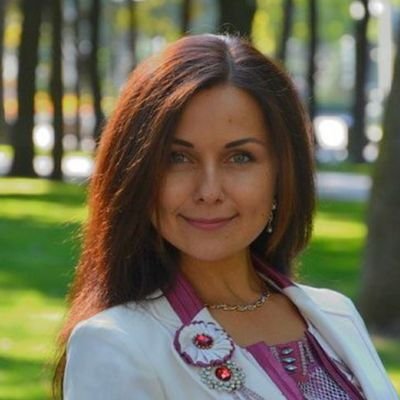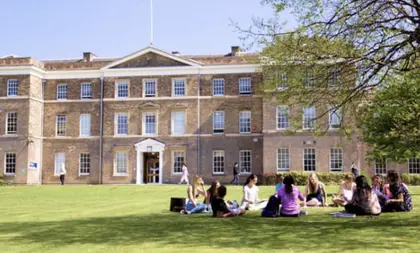Worried about the conflict raging in her homeland, and with war putting her job in doubt, Inesa Kostenko (34) fled Ukraine, together with her two primary school-aged children, in March 2022.
Prior to last spring’s Russian invasion, the future looked bright for Inesa, who had secured her dream job as a senior university lecturer in international space law, while her son and daughter were settled at school and extended family living nearby.
JOIN US ON TELEGRAM
Follow our coverage of the war on the @Kyivpost_official.

Inesa Kostenko (@InesaKostenko) / Twitter
However, the family home was in the city of Kharkiv, just 30km from the Russian border. Ukraine’s second-largest city became a target for the invaders in February, as it began to suffer from the start of relentless bombardment from missile strikes.
We had to shelter in the basement of our own house, because it was too dangerous to live above ground,” said Inesa. “My children were seven and 10 at the time and they were scared. They would ask me if we would wake up the next morning.”
Enough was enough and the Kostenkos made the decision to flee the country. “My parents drove us to the railway station, and it was like a scene from the Second World War, with masses of people trying to escape on the trains. Everywhere, people were crying. You can imagine what it was like for my children.
“We managed to get on a train and had no idea where it was going. We ended up on a 30-hour journey, in darkness, because of the blackout, with about 20 people crammed in the cabins. I didn’t care though, my only motivation was not to let myself or my children die.”

‘Risk of Catastrophic Failure’: Watchdog Wants Monitors at Ukrainian NPPs Immediately
A couple of weeks after arriving in Poland’s capital, Warsaw, where the family bedded down at a relative’s home, the Kostenkos were on the move again as the huge influx of refugees meant supplies and employment were scarce.
What followed for the Kostenkos was a five-month journey looking for refuge and employment. Inesa secured a temporary role at a university in Lithuania, however she then moved to Germany to escape the threat of Russian invasion. All the while, she was banking on an application she had made for a lecturing role at Leicester, via the Cara scheme. Cara helps academics who are being forced to flee by the risk of imminent imprisonment, injury or death, and works with them to find them temporary refuge in universities and research institutions until they can one day return home to help rebuild better, safer societies.
Inesa was successful in her application, and flew with her children to the East Midlands in June. For the first few weeks, the family stayed with a University colleague, via the Homes for Ukraine scheme, before being put up in University accommodation. Now, the siblings have settled into Leicester primary school life while Inesa pinches herself on a daily basis that she’s found her dream roleю
“I’m now a Lecturer in Space Law, and I absolutely love it,” she said. “I am in the very best place to work and carry out my research, because Leicester is the UK’s home of space research.”
Inesa added: “I cannot thank the University of Leicester and Cara enough. We are safe, that was the priority. Now, after a few months of settling in, I find I still have big dreams and ambitions, and I am in the place to fulfil them.”
Philip Horspool, Director of Centre for International Training and Education at the University, said: “It is fantastic that as a University we have been able to welcome Inesa and her family. Inesa has embraced our Citizens of Change ethos helping wherever she can and whenever asked with translating videos and a welcome pack into Ukrainian as well as the work she is doing in the Law faculty.”
You can also highlight the text and press Ctrl + Enter






